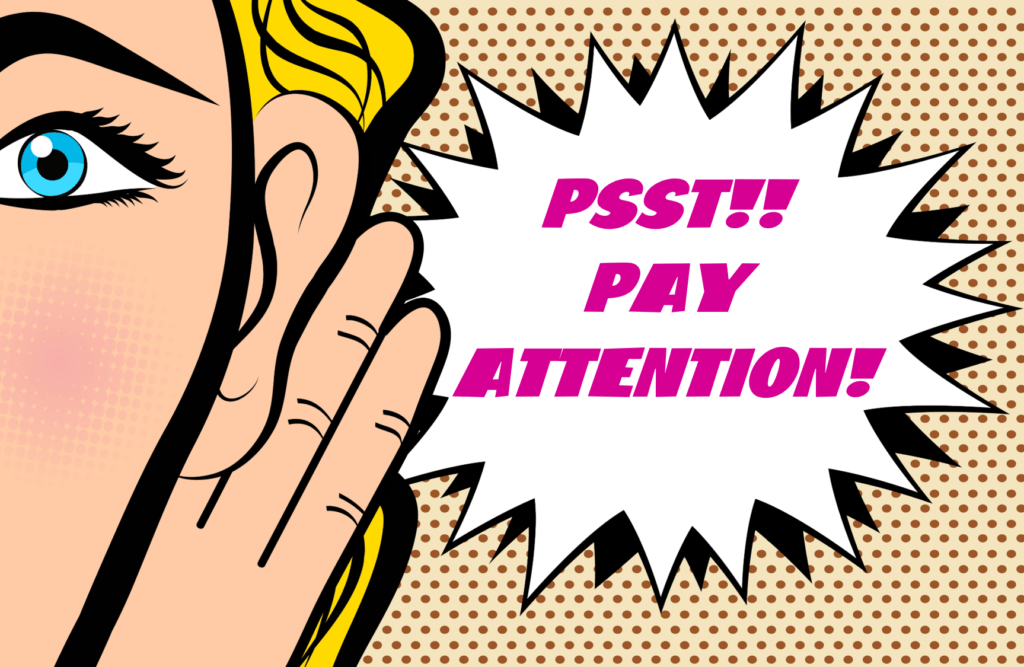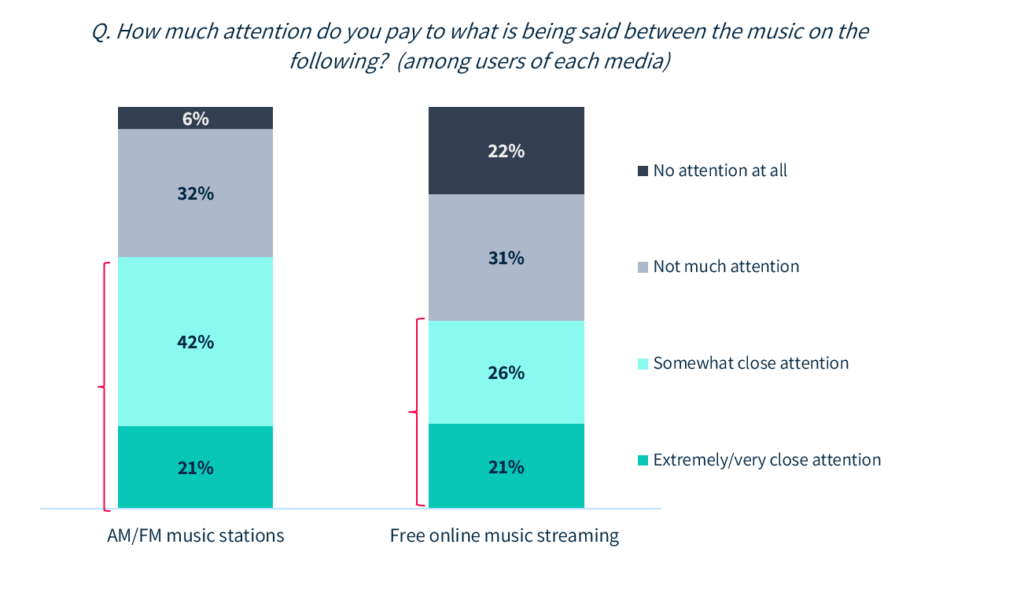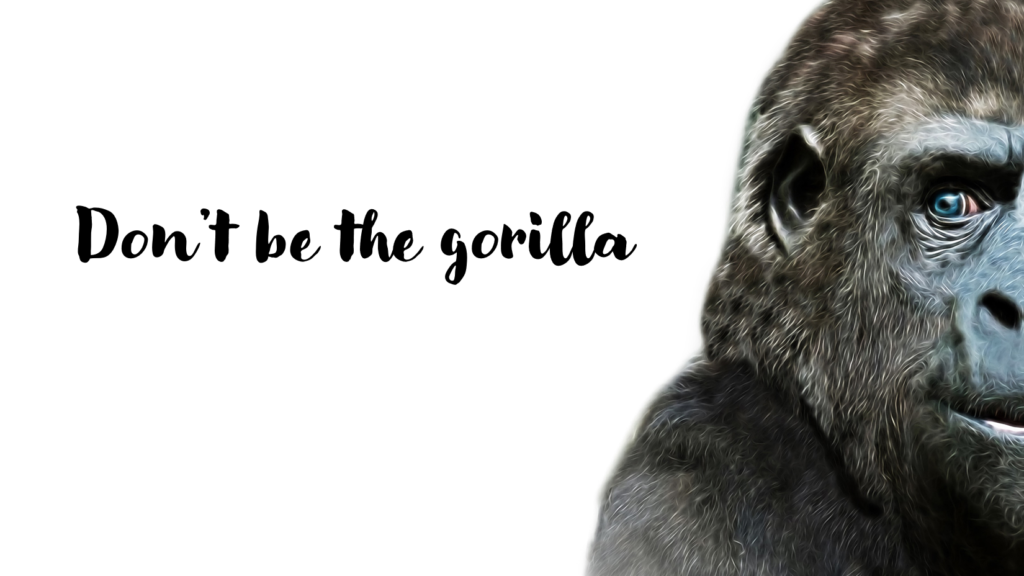
When you work in radio, you sometimes wonder whether anyone’s really paying attention.
I’ll bet many of you have experienced this before. There’s a local concert announcement – a big one. You’ve been promoting all afternoon you’ll break the big news at 5pm. At the appointed time, everything stops while you deliver the exciting concert news. And you made sure to repeat key details – the date, the venue, when tickets go on sale, etc.
And then the next 20 calls that come into the studio are asking whether the band is coming to and/or did you just deliver a big concert announcement. It’s frustrating, but very real. Listeners are often not paying attention.
Some feel the problem has been amplified since COVID. Microsoft ran a study concluding that during the pandemic, our attention spans dropped to sub-goldfish levels – down to the 8 seconds or less neighborhood.
But some social scientists dispute the research, claiming it was based on how long people stare at websites. Thus, the study may be less about paying attention, and more about other variables. (IMO many radio station websites couldn’t last the 8 seconds.)
Dr. Nick Morgan wrote in Psychology Today earlier this year that “attention spans are widely misapplied, misused, and misunderstood.”
Case in point: we binge watch a Netflix TV series in three nights. No doubt about it – we’re paying attention.
But Dr. Morgan concedes COVID’s real impact has less to do with attention spans and more to do with stress levels. He claims we are suffering from severe information overload, making it challenging to even deal with new ideas.
As a society, we have been headed down the attention deficit path for a long time, and like so many other trends, COVID has accentuated and perhaps even accelerated our seeming inability to stay focused.
So, in this cloud of stress and angst we find ourselves in, how do we get people to notice our radio stations when they’re stress-ridden and inundated with media coming at them from all sides?
To figure it out, let’s play a little game. There’s a 30-second video test below that I’d like you to take, asking you to pay attention to the number of times one the teams passes a basketball. (If you’ve seen the video – a Gordon Borrell favorite – skip it and pick up my text).
Enjoy.
The test speaks volumes about what people pay attention to…and what they miss.
Right now, much of their attention is being focused on the Internet, digital media, TikTok, podcasts, and Alexa. Radio stations have been around all of our lives, but often become virtually invisible in an environment where all eyes – or in this case, ears – are focused on everything else. Like wallpaper, it can be easy to miss – it’s always there.
Radio is the gorilla.
And in order to get noticed, radio stations in 2021 have to deviate from the norm, without losing the focus of why listeners tune in to begin with.  Radio’s deficit isn’t attention based – it’s expectation based. That is, if you almost always know what’s coming, you have a tendency to tune it out.
Radio’s deficit isn’t attention based – it’s expectation based. That is, if you almost always know what’s coming, you have a tendency to tune it out.
If the music rarely veers outside the guard rails, the morning show always does the same things every day at the exact same times, your production is rarely freshened, and you’re always doing the same contests, you may be falling victim to expectation-deficit syndrome. That is, you may be as invisible as the gorilla.
If programmers want to break out of the media mire and muck, stations will have to do things that are a bit…unexpected. Otherwise, listeners will be counting basketball passes somewhere else.
But wait, there’s some good news. And once again, it’s out of Canada. Jeff Vidler’s Signal Hill Insights reports that while not everyone is paying attention in between songs, broadcast radio is well ahead of Internet streaming services.
In a survey of 2,001 Canadians this past February in partnership with Radio Connects, they simply asked respondents whether they recall the content “in between the records” on both music stations and free music streaming platforms.
Here’s how it broke out:

While about one-fifth pay very close attention to interstitial material both on the radio and on music streams, the former has a decided edge among those paying somewhat close attention: 42% to 26%.
The margin gets even wider when the researchers asked respondents whether they use streaming platforms as background music. Among those consumers radio held a commanding 68% to 42% lead among those who responded “somewhat close” and “extremely/very close attention.”
Advantage: broadcast radio.
But not if programming is bland, banal, and totally predictable. The late Nick Michaels referred to the media collective as “an over-communicated world.” And he was right.
right.
To get noticed, radio broadcasters should feel the growing need to be compelling and even somewhat surprising – as opposed to always presenting the same-old, same-old.
I’m not making light of it. In the best of times, it’s a heavy lift. These days with depleted financial and human resources, it can seem daunting.
But that’s better than being the gorilla.
Thanks to Keith Cunningham and Daniel J. Simons
- What Is It With Female Robot DJs? - April 30, 2025
- Why “Dance With Those Who Brung You” Should Be Radio’s Operating Philosophy In 2025 - April 29, 2025
- The Exponential Value of Nurturing Radio Superfans - April 28, 2025




Great article, Fred – the heavy lift you reference at the end might also be that so many influential radio stations are corporately-owned where it feels like everything (and I mean everything) must be run up the chain for approval. And at some point some scared manager or conservative lawyer figures out what can go wrong and vetoes it. Many a talent has lost interest by the time the ruling is made. Which, of course, creates an opportunity for smaller companies. They can be more nimble and are more apt to see the benefits, freeing up resources to get stuff done. Surprising and delighting (and by that I don’t mean “better prizes to give out”) and being noticeably and boldly different with your engaging personalities are routes to greater engagement and memorability. Do that and listeners will start paying greater attention.
Steve, I appreciate the response. And you bring up an important consideration I had not thought of. The legal piece looms larger in our litigious world. And I hope your comment about the nimbleness of smaller companies resonates for many who read this blog. Thanks for chiming in.
A mentor early in my career was Frank Wood, architect of the legendary WEBN in Cincinnati and later, owner of Secret Communications. He always urged me to “bring attention to your station by taking intelligent risks”. That rings true today more than ever in our disengaged and distracted lives. The audience is screaming “Surprise me!”, yet many still feel the safer route is rinse and repeat.
I knew you’d enjoy the post. You’re one of the best practitioner of bringing that advice to the airwaves. Congrats on your success in Detroit!
As a jock, how do I grab their attention over a 6 second talk up?
Get creative!
Talk down10 seconds of the previous song. Insert a memorable quick tv/movie clip, and bang into the next track.(example: “Everyone needs a little more cowbell”..
Into Don’t fear the reaper).
Don’t ALWAYS do it.
Make it special.
Ps. If your pd or gm calls you out on this, you’re in radio hell and must get out)
JC, it starts with the wisdom of knowing you need to be creative. And how it goes from there is what separate the entertainers and engagers from the also-rans. Thanks, JC.
Create those “unexpected expected’s”. Calculated surprises that become a part of the station’s personality. Music surprises…….off the wall bits…….unusual contesting that’s fun and a little crazy……….Radio has that advantage away from the algorithms!!!
Yes, but we have to do it. Thanks, John.
I kept waiting for Jackson Armstrong to show up (LOL).
Seriously, I have my doubts that a large percentage of today’s air talent can be unpredictable and creative enough, as they made their way up the market-size ladder to their present positions in an era where “shut up and play the music” was a major directive.
And people like Freddy Snakeskin, who made such creativity as media drops and off-beat imaging a staple of KROQ in the 1980s, is languishing without a place to work his magic.
Your advice is spot on, Fred. Now how are we going to accomplish it?
There are still many personalities who find a way to be funny, real, creative, and clever. I love Broadway Bill Lee’s talk-ups on WCBS-FM. But craftspeople like him are too few and far between, K.M.
You made my point, Fred. Broadway Bill Lee is from that era where cleverness trumped formatics. The reason we have fewer air personalities (and that word fits perfectly in this context) is too many years of giving the imaging the higher profile.
And I miss personality radio.
Good point about production substituting for personality, K.M.
Eye opening, yet not surprised. Fantastic Fred👏👏👏
Appreciate it, Lu.